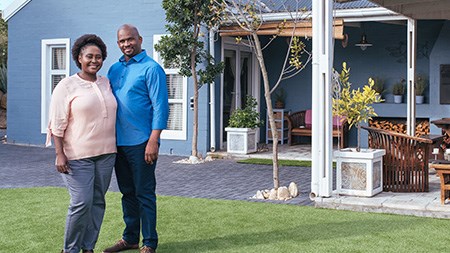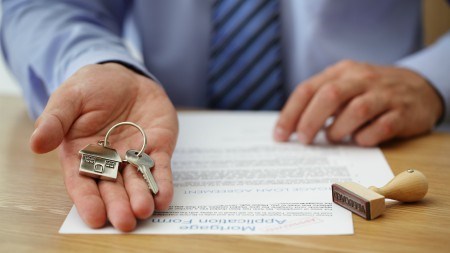When applying for a home loan, one of your most important considerations should be securing the lowest interest rate possible. And when the home loan is granted, you should do everything you can to reduce the term and the interest that you pay. These will save you a great deal of money in the long term.
"People tend to accept that their bonds require a monthly payment that they have no way of influencing," says Kay Geldenhuys, property finance processing manager at ooba, South Africa's biggest bond originator. "In fact, there are many things that you can do that may alter the amount of interest you end up paying and the term of your repayments."
A deposit makes all the difference
If at all possible, raise the biggest deposit that you can before buying a home, or save up for a large first payment while you are waiting for transfer to go through. "With a deposit, you will save money on your monthly repayments and be able to pay off your loan faster, saving thousands of rands and years off the lifespan of your bond," says Geldenhuys. "A R20 000 deposit on a R1 million home loan will reduce your total repayments by R41 656."
And, the bigger your deposit, the better your chance of getting a lower interest rate and reducing the total interest charged on your bond.
Secure the lowest interest rate possible
The next step is trying to get the lowest interest rate possible from the outset. This is best achieved by shopping around for the best home loan deal.
"This can be done at no charge to you by an expert bond originator like ooba, who will present your home loan application in the best possible light to multiple banks, and, then negotiate with the banks on your behalf to secure you the best possible interest rate," says Geldenhuys. "Home buyers hurry to accept a bond from the bank that offers them the biggest loan, with less regard to the interest rate, but securing a lower interest rate will save you a great deal of money in the long term."
Extending the term of your bond
Some people consider taking their bond over 30 years rather than 20. This reduces their monthly repayments, but ultimately increases the amount that they pay back, because the interest is charged over a longer term. On a bond of R1 million with an 8.5% interest rate, extending the term to 30 years may result in a reduction in the instalment of just under R1 000 per month, but the total repayments made by the end of the 30 year term will be R685,000 more.
"Increasing the term of your bond is only a good idea if you're really struggling with affordability," says Geldenhuys.
Make extra repayments whenever you can
If you won't be struggling to make the monthly repayments, it's actually always better to try to pay as much as possible into your bond each month. Geldenhuys explains that you should always pay as much into your bond as you can afford, both at the outset and at any time that you have the extra finances.
"Every time you have some extra cash - a tax refund, a big commission or an annual bonus - pay some of that into your bond," Geldenhuys says. "You may miss it in the short term, but in the long term you'll be much better off."
Remember that if you pay your monthly installments at an interest rate of 8.5%, by the end of the term of your bond, you will have paid back more than double the value of the loan. Interest on a mortgage loan is calculated daily and then billed monthly. Because of this, if you make any additional payments into your home loan, you will reduce the outstanding balance and the interest that you pay.
"This allows you to repay the loan over a shorter term, which results in a saving in the total interest paid," says Geldenhuys. "For instance, paying only an extra ten percent of your repayment every month can carve off around five years of your bond term and save you a significant amount of interest. And even a once-off additional payment will make a difference in the long term."
Talk to your bank manager
The next steps you can take to reduce the interest charged and paid involve your relationship with your bank. There are two conversations that you could have with your bank manager.
"The first of these is about reducing your interest rate at some point down the line," says Geldenhuys. "If you have a good credit history with your bank and are servicing your debt well, they may be willing to reduce the rate that they are charging you. And if the answer is no, find out when you can talk to them in future about a possible reduction."
Another conversation worth having is fixing the interest rate you have with your bank, if analysts predict that the interest rate may increase. "The fixed rate is generally higher than the variable rate, but if an increase is anticipated, this can protect you against the additional costs," says Geldenhuys. "It is always a gamble, however, because if the rate goes down, you lose the benefit of the decrease as well."



